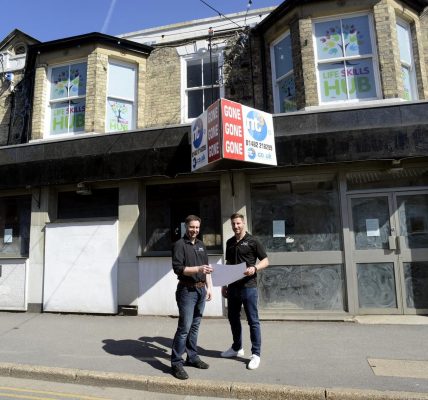Leeds-based Crisp helps Champions League winners Chelsea protect players from offensive social media posts
Leeds-based Crisp helps Champions League winners Chelsea protect players from offensive social media posts
A US company is helping Champions League winners Chelsea protect its players from offensive social media posts.
Chelsea has adopted Leeds firm Crisp’s technology to identify, report and remove hateful and discriminatory posts and is offering players support to identify and report abusive comments posted to their digital channels.
New research published today shows the UK safety tech sector, driven by companies like Crisp, is one of the fastest growing parts of the UK’s tech industry.
It saw a 40 per cent increase in revenues in the past year – reaching £314 million – and a 30 per cent increase in jobs, equating to more than 500 new roles.
Leeds-based companies Smoothwall and Crisp are creating technologies that prevent users, especially children, from coming across inappropriate or harmful material online.
Tech firm Logically, based in Brighouse, develops advanced artificial intelligence to fight misinformation by using fact-checkers and data science. This month, Logically and the University of Sheffield announced a research partnership using this advanced AI to tackle the issue of harmful misinformation online.
More than half (58 per cent) of all safety tech jobs are based outside London, with high-performing hubs developing in tech savvy cities including Leeds, Cambridge and Edinburgh.
The sector has seen overall growth of 43 per cent, with the number of safety tech companies surpassing 100.
Safety tech companies provide products and services to create safer online experiences for people. This includes products such as AI programmes which can block illegal content, identify underage users, disrupt the spread of harmful disinformation and help moderators detect abuse.
Last year ministers committed to developing the safety tech sector and recently published the draft Online Safety Bill to give online companies a new legal duty of care to protect their users, particularly children, from harm.
Digital Minister Caroline Dinenage said: “The stellar growth we’ve seen shows how the UK is at the forefront of using technology to solve problems around how online companies protect their users. Through our groundbreaking new laws, and with our safety tech sector going from strength to strength, we are paving the way for people to have a better relationship with the online world.”
Andy Burrows, NSPCC Head of Child Safety Online Policy said: “This growth in the safety tech sector is a great opportunity for the UK to build a position as one of the leading centres of expertise on online harms, and in turn, to keep children safe from abuse.
“Safety tech is so exciting because it delivers innovative new solutions to online harms. It’s a crucial part of supporting companies large and small to meet their upcoming requirements under the Duty of Care regulatory regime.”
Ian Stevenson, Chair of the Online Safety Technology Industry Association (OSTIA) and CEO of Cyan, added: “The report highlights that the UK Safety Tech sector is thriving. As the threat grows, innovators and determined tech creators are finding new ways to support organisations in their efforts to better protect children online, identify abuse and flag harmful content. The UK is already well ahead in the global safety tech sector.”










